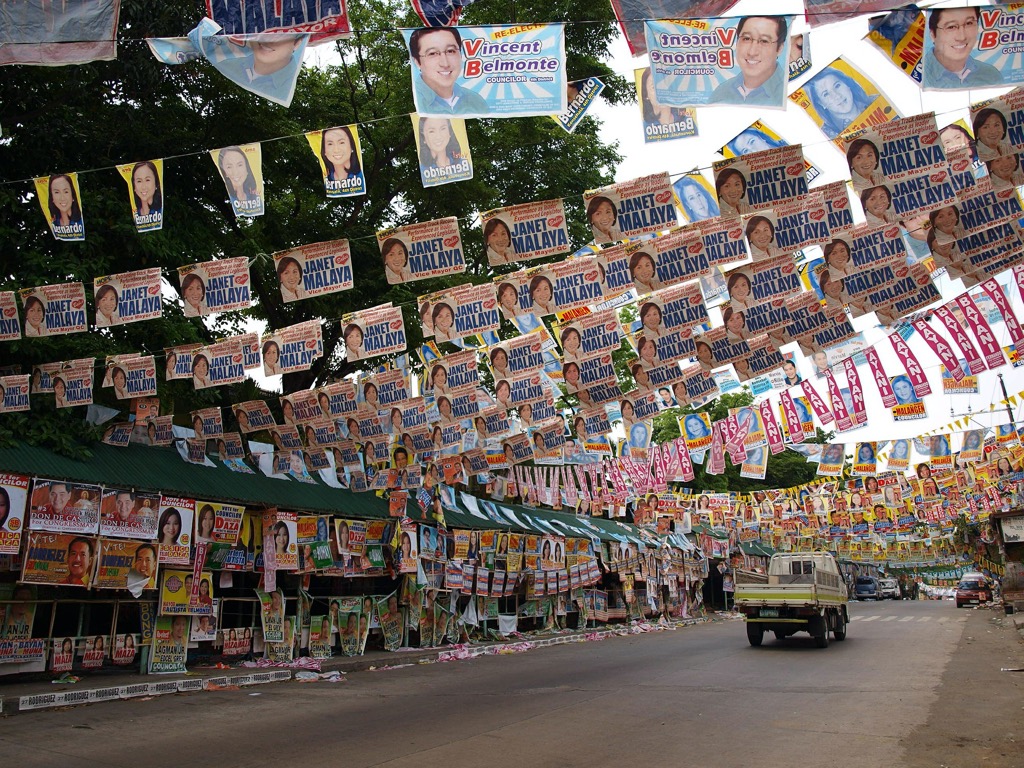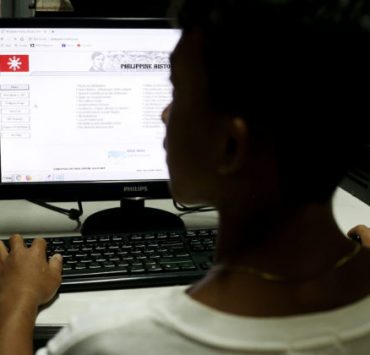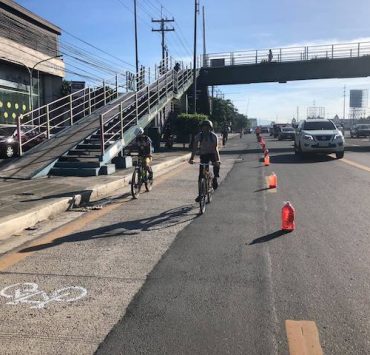While many of us were busy adjusting to the resumption of work as most parts of the country shifted to general community quarantine, the House of Representatives has been busy on Jun. 1, too—after all, the 18th Congress has until this week before the first regular session is adjourned.
Days after the House Committees on Public Order and Safety and on National Defense and Security approved the controversial Anti-Terrorism bill, legislators have also quietly advanced another bill into final reading on Monday: House Bill No. 6095, which seeks to amend Section 13 of Republic Act No. 7166 or “An Act Providing for Synchronized National and Local Elections and for Electoral Reforms, Authorizing Appropriations Therefor, and for Other Purposes.”
More spending
The bill, formally called “An Act Increasing the Amount of Authorized Election Campaign Expenses of Candidates and Political Parties,” proposes a 500 to 1,000 percent increase in campaign spending per voter for each position.
Out of the 302 members of Congress, 213 lawmakers voted yes to increasing campaign expenses for each voter up to P50 for presidential, vice presidential and senatorial candidates from the previous P10 (for presidential and vice presidential candidates) and P3 (for senatorial candidates) stated in RA 7166.
[READ: What can people do while waiting to register to vote on Jul. 1? Ask COMELEC questions on FB]Other candidates like district representatives, governor, vice governor, board members, mayor, vice mayor and councilors, from a previous allowable P3 spending per voter, can spend up to P30.
Likewise, the bill also proposes a new spending cap for political parties with national candidates (P50 from P5) and local candidates (P30 from previous undefined limit).
Previously, the Omnibus Election Code prohibited political candidates from overspending. Violation of this law could result in imprisonment of one year to six years, disqualification from holding public office and removal of one’s right to vote.
If passed into law, the bill will also adjust the amount to inflation every six years, through consultations between the Commission on Elections, Bangko Sentral ng Pilipinas, National Economic and Development Authority and Philippine Statistics Authority.
“Obviously, huge campaign spending builds up the kind of exposure that assures name recall. These give wealthy candidates and those who have wealthy patrons a distinct advantage, raising questions about the kind of elections that is mobilized primarily by money.”
More chances of winning—for the rich
Although the bill will have to pass through several processes before it is signed by President Rodrigo Duterte and ratified into law—its Senate equivalent SB No. 810 is up for second reading (a previously filed version in the 17th Congress was toppled in the Senate)—its implications are telling.
Its authors said that the intent of the bill is to increase the spending cap to a “more realistic level” to encourage candidates to declare their actual election campaign expenses as required by law.
Only six lawmakers voted against the measure. One of them, Gabriela Party-list Rep. Arlene Brosas, reasoned that passing the amendment will favor only those who can afford to spend that much.
“It distorts the already skewed election playing field to the benefit of rich and powerful political families who have the means to max out their campaign expenses, while eligible ordinary Filipinos had to make do with limited exposure,” said Brosas.
More candidates w/ net worth less than their adspend – Angara, Tolentino, Poe, Alejano, Pimentel. Candidates w/ net worth bigger than their adspend, as of Jan 2019 – Villar, Mangudadatu, Enrile, Estrada, Revilla, Cayetano, Ejercito, Binay https://t.co/scwgz57AGw @2019pollwatch pic.twitter.com/O0pugFTraR
— PCIJ (@PCIJdotOrg) February 13, 2019
In 2019, a report by the Philippine Center for Investigative Journalism (PCIJ) found that half of the senatorial candidates spent more than their declared net worth in pre-campaign political ads.
The biggest anomaly is then Presidential Special Assistant Bong Go, who spent over P400 million for 1,016 ad spots or 29,940 seconds of airtime exposure while his net worth is only P12.85 million.
[Go] spent P161.4 million throughout his campaign to woo 54,363,844 registered voters at the time. That’s roughly P2.97 per voter.
Go went on to win as senator, along with others who spent beyond their declared net worth: Imee Marcos (who filed SB No. 810), Sonny Angara, Grace Poe, Francis Tolentino and Koko Pimentel. The ad spending of 18 senatorial candidates on pre-campaign TV, radio, print and outdoor ads amounted to P2.4 billion, said PCIJ.
The Center for Media Freedom and Responsibility (CMFR), citing the PCIJ report last year, said, “Obviously, huge campaign spending builds up the kind of exposure that assures name recall. These give wealthy candidates and those who have wealthy patrons a distinct advantage, raising questions about the kind of elections that is mobilized primarily by money.”
A month after the elections, Go released a copy of his Statements of Contributions and Expenditures (SOCE), which revealed that he received a total of P162 million in contributions, the highest among winning senators. Of which, he spent P161.4 million throughout his campaign to woo 54,363,844 registered voters at the time. That’s roughly P2.97 per voter.
Including Go, all 12 winning senators spent a total of P1.3 billion during campaign season based on their SOCE—with the P3/voter cap. With the P50 cap in effect in the 2022 election, this will likely balloon to approximately P21.6 billion (for 12 senators), not factoring in the four million new voters expected next year, which candidates would have to spend for.
And that’s just among the senatorial candidates. 2022 election will see a new roster of presidential and vice presidential contenders, each of whom can spend up to P50/voter + P50/voter funding care of their political party—if HB 6095 becomes a law.
Header photo by Eduardo Davad from Pixabay
Get more stories like this by subscribing to our weekly newsletter here.
Read more:
What can people do while waiting to register to vote on Jul. 1? Ask COMELEC questions on FB
Despite citizen protests, Duterte deems anti-terror bill “urgent”
LOOK: Commuters with no transpo options struggle on first day back to work as NCR shifts to GCQ
Writer: CHRISTIAN SAN JOSE





